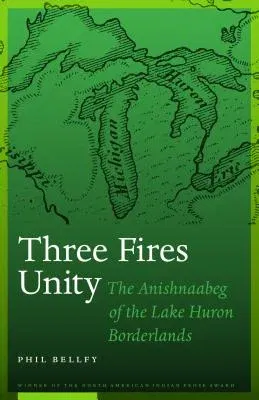The Lake Huron area of the Upper Great Lakes region, an area spreading
across vast parts of the United States and Canada, has been inhabited by
the Anishnaabeg for millennia. Since their first contact with Europeans
around 1600, the Anishnaabeg have interacted with--and struggled
against--changing and shifting European empires and the emerging
nation-states that have replaced them. Through their cultural strength,
diplomatic acumen, and a remarkable knack for adapting to change, the
Anishnaabeg of the Lake Huron Borderlands have reemerged in the
twenty-first century as a strong and vital people, fully in charge of
their destiny.
Winner of the North American Indian Prose Award, this first
comprehensive cross-border history of the Anishnaabeg provides an
engaging account of four hundred years of their life in the Lake Huron
area, showing how their history has been shaped and influenced by
European contact and trade. Three Fires Unity examines how shifting
European politics and, later, the imposition of the Canada-United States
border running through their homeland continue to affect them today. In
looking at the cultural, social, and political aspects of this
borderland contact, Phil Bellfy sheds light on how the Anishnaabeg were
able to survive and even thrive over the centuries in this intensely
contested region.
Phil Bellfy (White Earth Chippewa) is a professor emeritus of
American Indian studies at Michigan State University. He is the author
of Indians and Other Misnomers: A Cross-Referenced Dictionary of the
People, Persons, and Places of Native North America.

